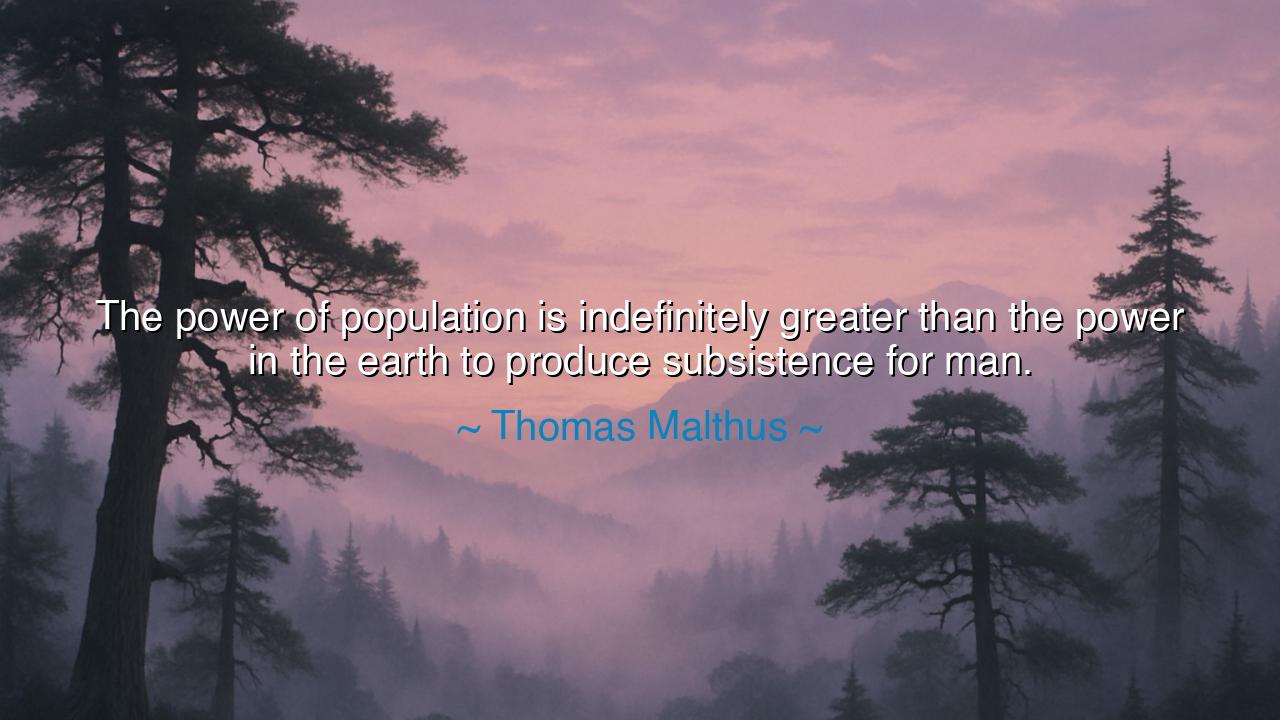
The power of population is indefinitely greater than the power
The power of population is indefinitely greater than the power in the earth to produce subsistence for man.






The English thinker Thomas Malthus thundered with grim foresight when he declared: “The power of population is indefinitely greater than the power in the earth to produce subsistence for man.” In this saying lies a warning as old as civilization itself—that the hunger of men grows faster than the fields can yield, that desire multiplies without limit, while the bounty of the soil increases only with toil and time. It is a prophecy of imbalance, a reminder that nature places bounds upon human ambition, and that to ignore these bounds is to invite suffering.
The origin of this teaching rests in the late eighteenth century, when Malthus observed both the swelling numbers of the poor and the fragile capacity of agriculture to sustain them. While nations dreamed of endless progress, he saw the shadow that followed plenty: more mouths to feed, more hands reaching for a loaf that did not grow in equal measure. His vision was not born of cruelty but of sobriety, a recognition that unchecked population threatens famine, war, and plague, the ancient scourges that nature uses to restore her balance.
History itself offers a chilling mirror in the story of the Great Famine in Ireland. When the potato crop failed in the 1840s, millions were left without sustenance, for the land could no longer match the swelling population’s needs. Starvation spread like fire, and countless perished or fled across the seas. Here Malthus’s warning took flesh: the earth’s subsistence was outstripped, and the price was paid in sorrow and exile.
The ancients, too, grasped this truth. The Greeks told of Demeter, goddess of grain, who withheld her gifts when balance was broken, bringing famine to kings and peasants alike. The Romans feared the wrath of Ceres, knowing that no empire could stand if its granaries were empty. From age to age, men have learned that the plenty of one season can vanish when desire multiplies beyond what the earth can give.
Therefore, O seekers, heed this wisdom: do not treat the earth as an inexhaustible storehouse, nor the growth of population as an endless triumph. Guard balance, honor the soil, and remember that subsistence is not promised, but earned with care. For when men forget the limits of nature, famine is their tutor, and when they respect her bounds, abundance becomes their blessing. Thus speaks the enduring truth of Malthus—that human desire must bow before the patient laws of the earth.






AAdministratorAdministrator
Welcome, honored guests. Please leave a comment, we will respond soon